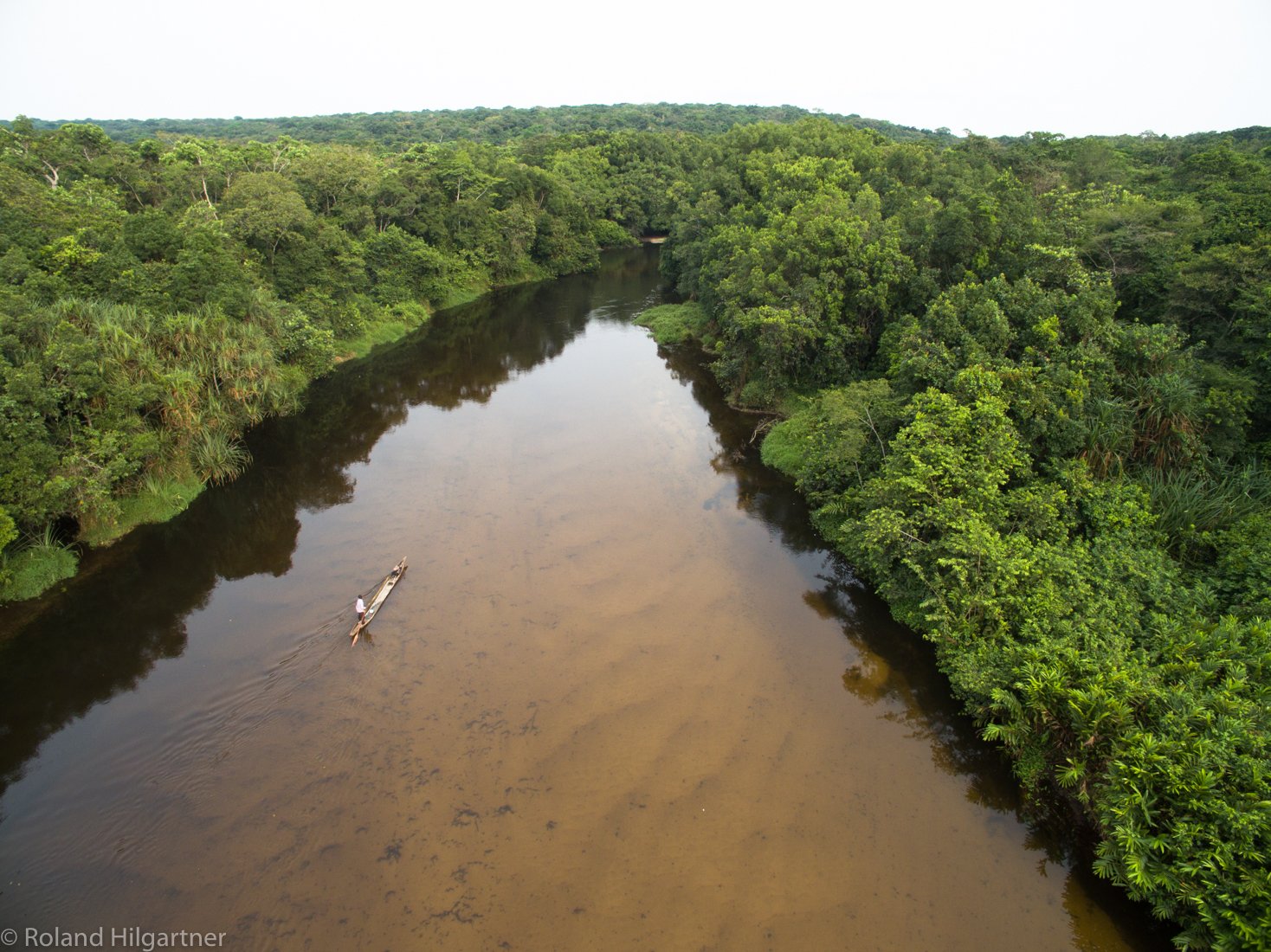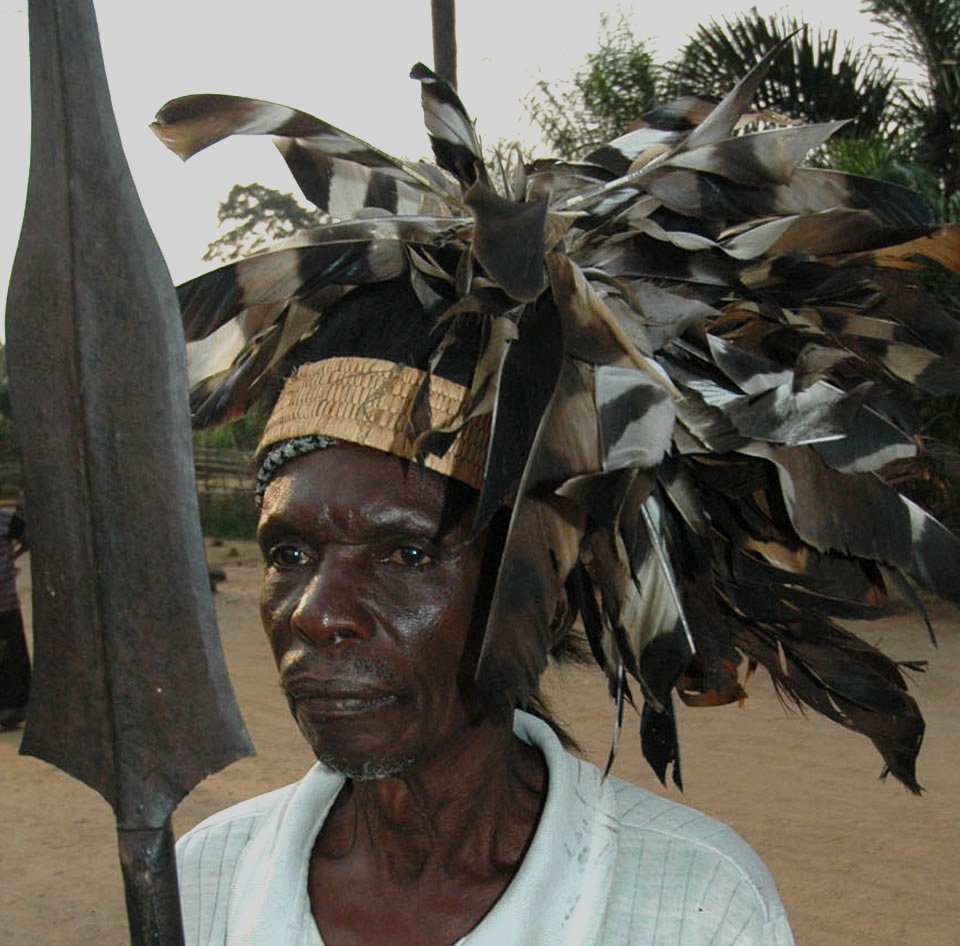
Bonobo Peace Forest
Photo © Roland HilgartnerA safe haven for bonobos. Millions of acres of protected rainforest. Billions of tons of carbon sequestered, helping prevent climate change.
A network of reserves managed by local communities, providing sustainable sources of income, educational opportunity, and lifesaving services. A brighter future for all. This is the Bonobo Peace Forest.

Together with our local Congolese partners, we have created a pioneering model of conservancy that is both cost-effective and sustainable. Look what we’ve achieved so far:
two nature reserves spanning 35,000 square kilometers (13,000 square miles)—the size of Massachusetts and Rhode Island combined
five additional sites on the path to official protection where bonobos are actively protected by the local people
training, equipment, and capacity building for hundreds of Congolese conservationists
community development programs, including a health clinic, sustainable agriculture programs, scholarships and micro-enterprise for women
Since 2001, the Bonobo Peace Forest has evolved organically, driven primarily by Congolese community interests, from the grassroots level to the national leadership. Our goal is to connect the community forests and protected areas to create a vast corridor of protection for bonobos and other species. We are well on our way to making the Peace Forest vision a reality!
Our guiding vision
The Bonobo Peace Forest is named in honor of the peaceful, cooperative society of bonobos. At the time of the Peace Forest’s conception, Congo was suffering from a war driven by competition over natural resources. Unlike humans and their other closest relative the chimpanzee, bonobos do not engage in regular violent conflict. Often referred to as the “make love, not war” ape, bonobos resolve conflict through sexual contact and other forms of social bonding. They serve as a powerful flagship species both for conservation and for peace.
A study by Rainforest Foundation UK reinforced the idea that the conventional “park” models of conservation have not proven to be the most effective approach in the Congo Basin. They often fall short in protecting wildlife and threaten the livelihoods of indigenous people. It’s time to move past the “guns and guards” method of conservation into a new era of peace and partnership. The Bonobo Peace Forest builds more than reserves; it builds a conservation-centered way of life.
Photo © Bonobo Conservation Initiative
Awards and recognition
The Bonobo Peace Forest has been called ‘a new paradigm for conservation in the 21st century.’ It was a finalist for the prestigious Buckminster Fuller Challenge for ‘solving to system,’ providing sustainable and replicable solutions to global problems. In 2020, our longtime partner Vie Sauvage won the Equator Prize. This prize, awarded by the United Nations Development Programme, celebrates local community initiatives that advance innovative nature-based solutions for conservation and sustainable development. The Peace Forest was the major announcement of the 8th Annual World Wilderness Congress, which highlighted the role of indigenous peoples in protecting wilderness. The Peace Forest project has been officially endorsed by UNESCO and the DRC Office of the Kyoto Protocol, as well as by the DRC government and numerous local communities. BCI’s work in the Peace Forest was the subject of Deni Béchard’s Nautilus Award-winning book Of Bonobos and Men: A Journey to the Heart of the Congo.
Photo © Bonobo Conservation Initiative
A sustainable solution
80% of the world’s remaining biodiversity is found on indigenous lands. Building upon and strengthening traditional stewardship, the Peace Forest addresses the threats to bonobos and the Congo rainforest through a holistic, “whole systems” approach. Community-based leadership is the key to solutions that are a win-win-win, benefitting wildlife, the local people, and the entire planet.
The Bonobo Peace Forest addresses many of the UN Sustainable Development Goals. Market-based “payments for ecosystem services” (PES) and carbon credit mechanisms such as REDD+ promise to provide sustained, long-term income for the DRC and local communities for the global services their forests provide.
Photo © Bonobo Conservation Initiative
Enjoy a short visual journey through the Congo River Basin and the Bonobo Peace Forest!
Photo © Bonobo Conservation Initiative
Photo © Russell Mittermeier
Photo © Christian Ziegler, National Geographic
Photo © Gwenn Dubourthoumieu
Photo © Russell Mittermeier
Photo © Roland Hilgartner
Photo © Roland Hilgartner
Photo © Bonobo Conservation Initiative
Photo © Roland Hilgartner
Photo © Bonobo Conservation Initiative
Photo © Roland Hilgartner
Photo © Bonobo Conservation Initiative
Photo © Gwenn Dubourthoumieu




















